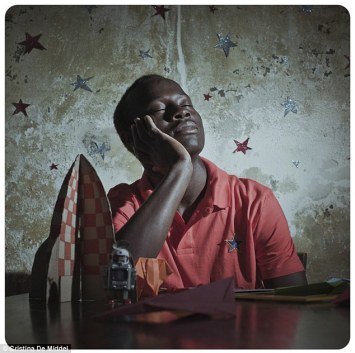Afronaut: Africa has a role to play in human space exploration
Africa is constantly progressing on sciences, technologies and education. This progression could greatly benefit the local development of the space sector. In turn, the space sector would provide communication, navigation, global monitoring and would drive towards development of the whole continent. They have a role to play in human space exploration.
Afronauts for Africa
So far, three people may deserve the title of Afronaut. First, Patrick Baudry is a French astronaut of CNES (French Space Agency) born in Douala in Cameroun. He flew on Discovery in 1985 for a NASA mission. Second, Mark Shuttleworth is a British-South African entrepreneur, and was the second space tourist. In 2002, he flew on-board of a Soyuz Russian mission and spent 8 days on-board of ISS (International Space Station). He “bought his journey” for almost 20 million US Dollars and had to train for a year mainly in Star city, Russia. Finally, Mandla Maseko is an engineering student from Mabopane in South Africa. He is one of the winners of the global Axe Apollo competition. If he successfully passes his medical tests, he will fly on-board of the Lynx Mark II in 2015. So, fingers crossed for Mandla.
And…that’s it! Actually, Africa doesn’t really have a formal astronaut born, raised, educated, selected and trained by Africa.
Past and present ambitions
In 1964, the Zambian Director of the National Academy of Science, Edward Makuka Nkoloso, came with the ambition to send a human in space. He planned to send one 17 year old girl and two cats to the Moon. Unfortunately, the freshly independent government of Zambia was not ready to support such a space program and Nkoloso never managed to collect enough funding. Today, this Zambian adventure is qualified on the web as “fiction” or “fantasy”. We prefer to believe that this man dared to breach the limits and restrictions for the scientific and technological ambitions of his country. Zambia in space, for sure!
In 2013, the Nigerian Space Agency NASRDA announced they will train one astronaut by 2015. The director general of the agency, Dr. Seidu Mohammed declared:
“The possibility of this has been demonstrated by a lot of research done in the past and we have decided that by 2015, a Nigerian can go to the space and conduct research at the highest level”.
We are now waiting for this afronaut! Full text here.
Currently, only five African countries have developed a solid space program: Algeria, Egypt, Nigeria, Morocco, and South Africa. They have in place policies, laws, investments and scientific programs.
The best way for Africa to prepare regular afronauts will be an African cooperation. At the moment, most of African countries haven’t yet defined any national policies and programs to develop space industries and sciences. What could be the future of spaceflight in Africa?
The global situation of space in Africa is described in the Geoffrey Onyango’s article on the African Sciences News website.
Because we are all Born For Space !
